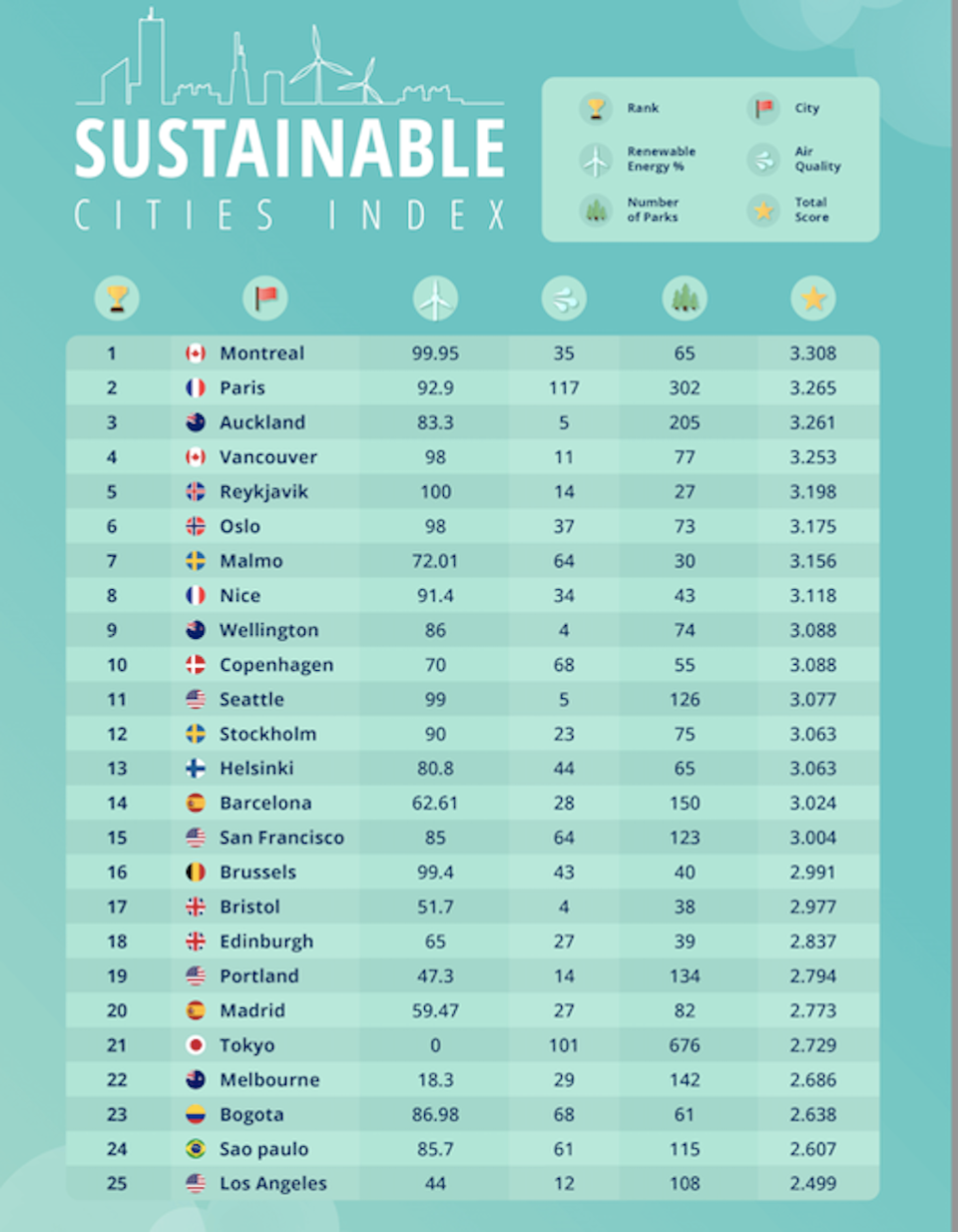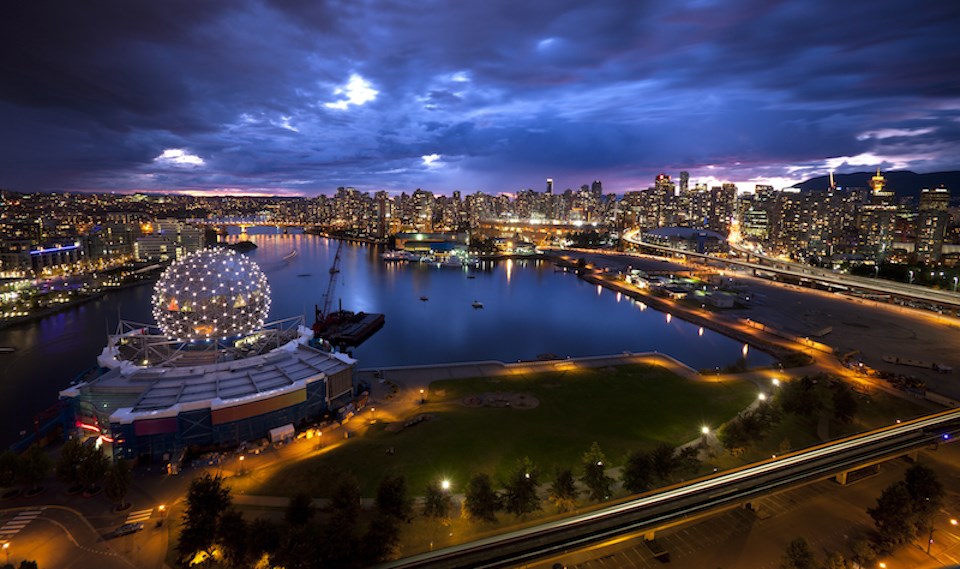Â鶹´«Ã½Ó³»has been ranked one of the world's most sustainable cities, beating out nearly every other major city in North America.
, an online insurance comparison platform, ranked 50 cities around the world based on their respective air qualities, use of renewable energies, number of parks, average distances people walk to work, and bike infrastructure.
Another Canadian city, Montreal, took the top spot on the worldwide ranking, with a whopping 99 per cent of its energy coming from renewable sources. Quebec's largest city also boasts an impressive green space, with 65 parks spread across the city. It also had the fourth-best cycling infrastructure in the world, making it an ideal place to live if you plan on leaving your car at home on your commute (at least in the warmer months).
A second francophone city, Paris, came next in the ranking, with a staggering 302 green spaces spread across the city. It also has the world's sixth-best score for renewable energy, with 93 per cent of its energy coming from renewable energy.
Auckland, New Zealand came third in the ranking, boasting 205 green spaces and 83.3 per cent of its energy coming from renewable sources. It also tied Seattle for the best air quality in the world.
Â鶹´«Ã½Ó³»ranks in the top five most sustainable cities
Â鶹´«Ã½Ó³»claimed the fourth spot on the list, with an impressive 98 per cent of the city's energy coming from renewable sources and 77 green spaces spread across the city. The report's authors highlighted the "Greenest City Action Plan," which maps out how the city will increase this figure to 100 per cent by 2050.
B.C.'s biggest city was also praised for increasing the number of its "green jobs" to 87 per cent by 2010, and creating 4,700 clean technology jobs.
Reykjavik, Iceland rounded out the top five, with Oslo, Norway placing sixth. Malmo, Sweden took the seventh spot, with Nice, France coming eighth.
Another city in New Zealand, Wellington, came ninth, with Denmark's capital city, Copenhagen, placing tenth.





